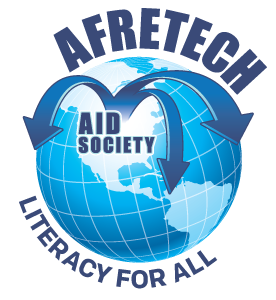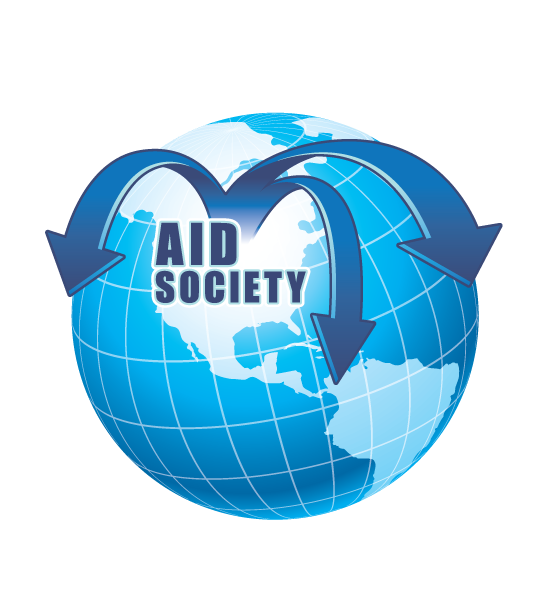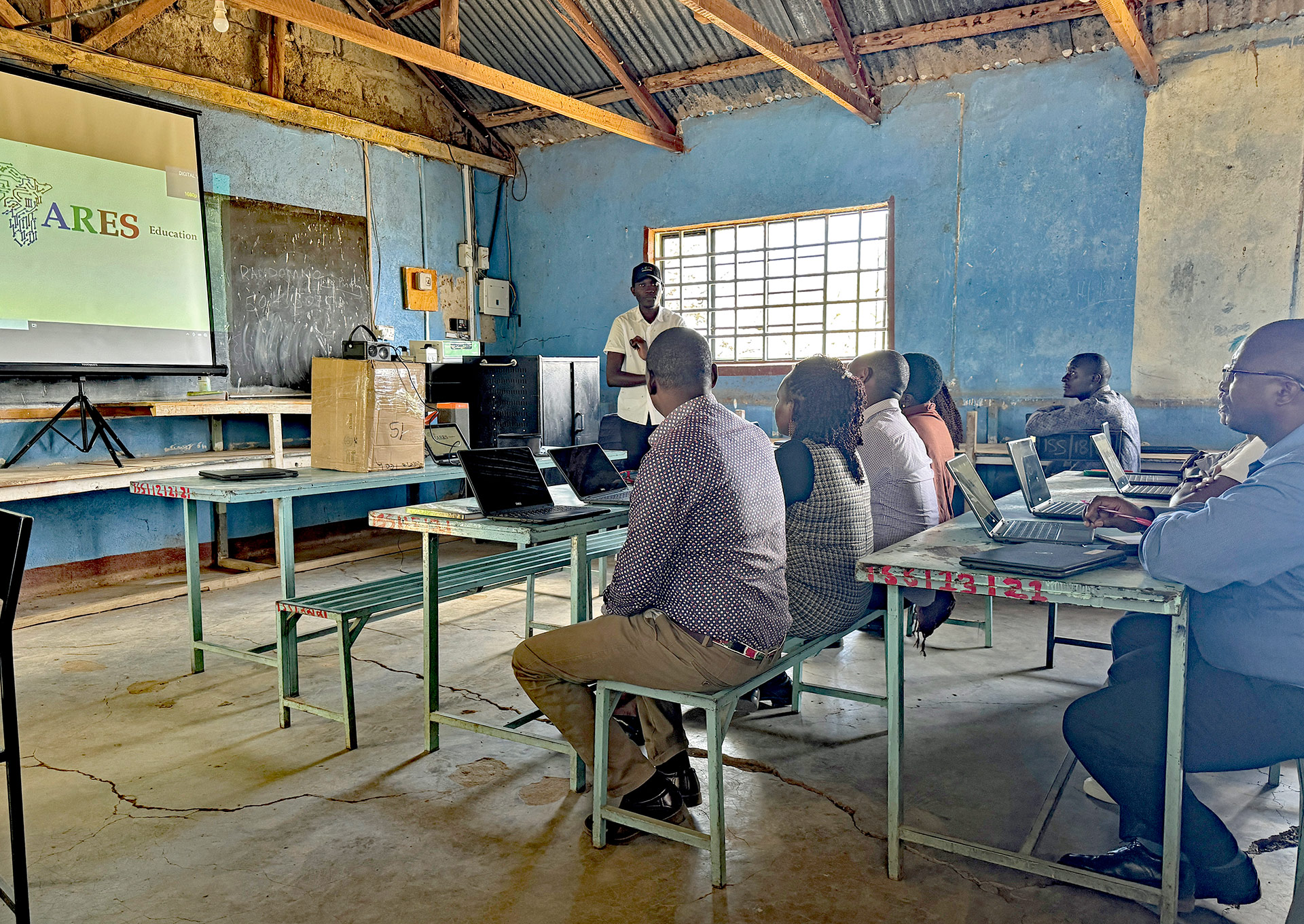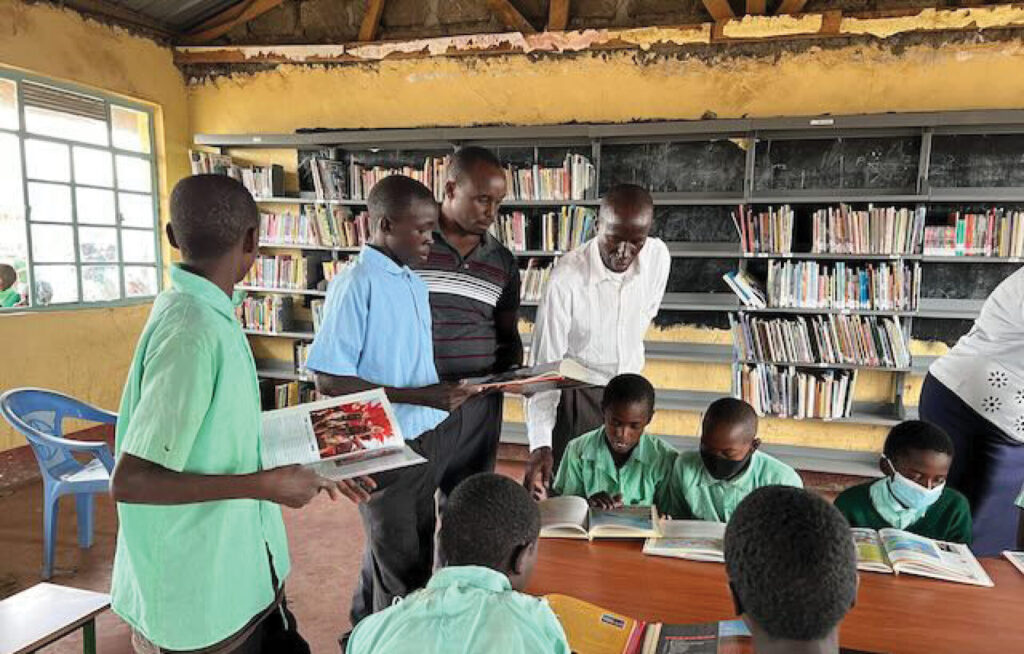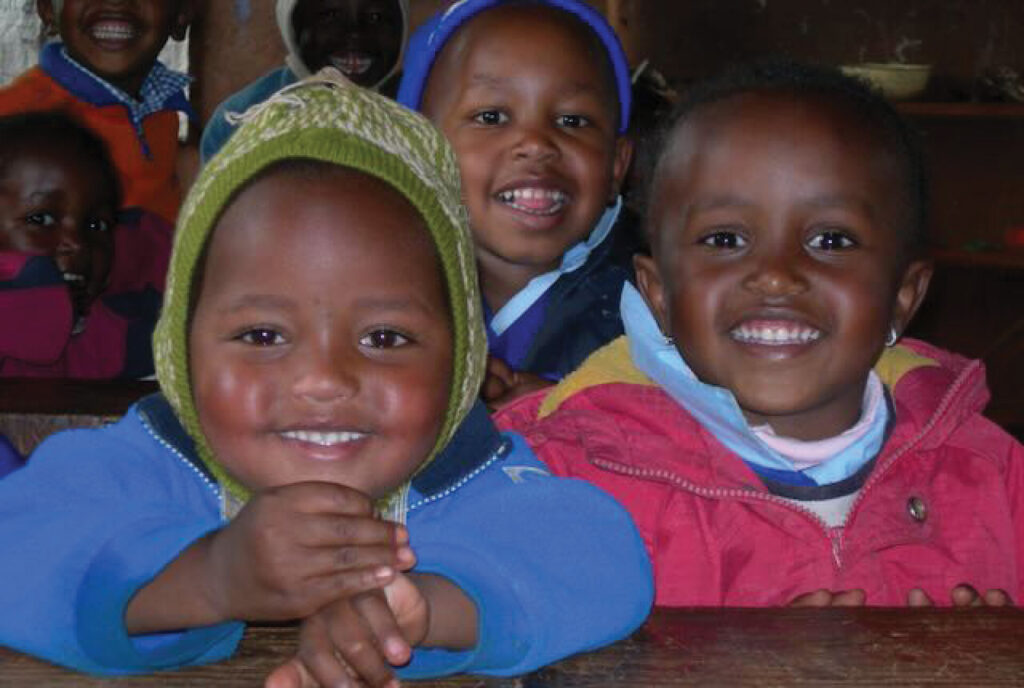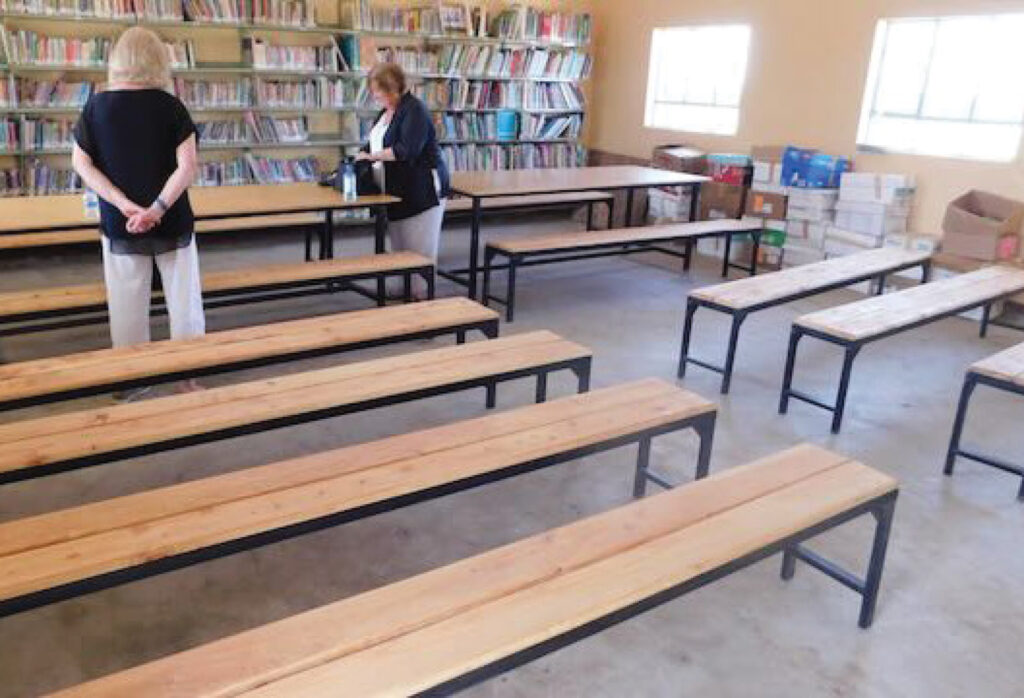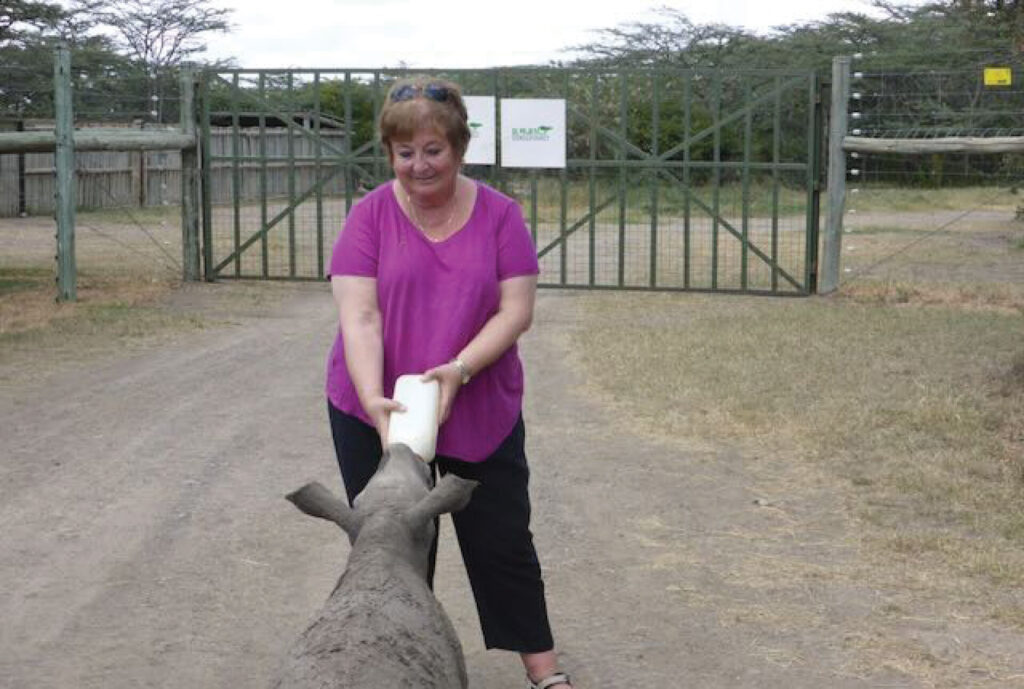Small Decisions, Big Effects
CELEBRATING 33 YEARS OF AFRETECH
It seemed an insignificant decision at the time. It was 1992, and my husband and I were standing in a partially built school in Victoria Falls, Zimbabwe, looking at a near-empty bookshelf.
As a result of that decision 33 years ago, I estimate that we have touched, and been touched by, more than one million lives. The projects put into motion since that day includes the distribution of schoolbooks, the building of school and community libraries, provision of eye care clinics and medical equipment for hospitals and clinics, installing computers and engineering and rolling out ARES, our African/Asian Ruggedized Computer Solution.
In that little school in Victoria Falls, we noted the paucity of resources: one small shelf with 30 or so books, the latest having a publication date of 1965. While waiting for elephants to clear the courtyard, we decided, as so many do, to help by collecting and sending books that had been withdrawn from Canadian school libraries.
That first pallet of books we collected faced all the challenges of shipping: finding suitable content, the related costs and duties, and it took a full year to arrive. However, when we visited again some three years later, those BC math books were in use on every desk while our reading books were proudly displayed in their little library. Over those three years we had also developed a system for our project, and had recruited volunteer helpers and many donors. Book pick-ups became routine and shipping gradually became easier.
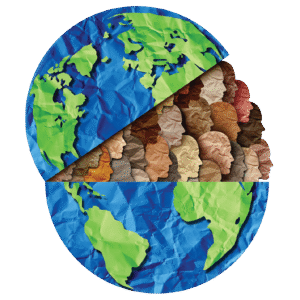 Zimbabwe was our destination for the next five years: shipments of school library books went to all parts of the country. However, by 2002, the political landscape forced us to shift. Lorrie Williams, founder of the Canadian Harambee Education Society (CHES), persuaded us to consider Kenya.
Zimbabwe was our destination for the next five years: shipments of school library books went to all parts of the country. However, by 2002, the political landscape forced us to shift. Lorrie Williams, founder of the Canadian Harambee Education Society (CHES), persuaded us to consider Kenya.
One of our goals was to install a library at Endana Primary School, a remote, desolate school with few amenities in Laikipia, one of the poorest areas in the country. Goats and sheep wandered the dusty schoolyard and the occasional camel walked past.
Road bumps did occur. On one occasion, I had 47 cartons of books stuck in customs during the Education International Conference in Harare,
Zimbabwe. Following the conference keynote there was a VIP reception to which I was definitely NOT invited, but I crashed it anyway. It turns out that President Robert Mugabe was a former English teacher, so we had something in common. After the necessary small talk, I got to the point: getting my books released. Immediately after our chat, the books were on their way.
First, all the books – both fiction and non-fiction – had to be processed which meant adding spine labels using the Dewey Decimal System. Once we had finished that chore, we set off with 100 boxes (4,000+ books), enough to really make a difference.
Driving to our destination, the uneven road faded and sometimes disappeared altogether, but we did eventually find the place. We unloaded and began the task of systematically filling the shelves. Only then did we notice a young boy of about nine watching attentively at the window.
A little later, we realized he had sidled in and was hunched in a corner. The next time we checked he was under a table, absorbed in a book. Needing help, we coaxed him out and taught him how to file, a chore he took to immediately. He stayed the entire day and at the end we asked him to choose a book for himself. By then his friend had come to fetch him, and we watched the two of them pore over their new and precious possession as they headed home.
We chose the name Afretech AID Society (Africa’s Future Through Education and Technology) and acquired Canadian and US charitable status with the ability to issue tax receipts. We also developed a much broader
mandate. Now, shipments included computers in addition to library books and we began supporting clinics and health projects – anything to do with children. One of our first projects in Kenya outfitted a county hospital with its first-ever operating rooms. The World Health Organization (WHO) had built the theatre but expected the locals to outfit it. That just wasn’t going to happen without donated equipment.
Slowly, we added mixed shipments of educational and medical equipment to Ghana and the Philippines as well as Kenya. There were also the eye care clinics that Afretech, along with Rotary International, organized in Kenya and Zanzibar: five doctors, 10,000 pairs of glasses, and fifteen lay volunteers processed thousands of eye exams – doing the initial assessments, paperwork, and fittings. Cataract surgeries were also arranged.
All the while, educational projects were increasing. My library teams travelled to remote county areas around Kenya to set up school and district libraries and train teachers and staff. The process is quite straightforward. First, the school must have a suitable, secure room and want the resource. About 4,000 books are needed, a combination of fiction and non-fiction refitted with spine labels. Afretech then buys proper metal library shelving in-country and contracts locally for three tables and six benches, all with metal frames to thwart termites. Installation day involves sorting and shelving the books, and training, which is an important and necessary component. Finally, we buy books by local authors to reflect African culture.
Computer lab installations call for a different set of requirements: a secure room, appropriate electrical wiring, tables, or narrow shelves, and seating. Often our IT volunteers find themselves putting in the first school and district library for an entire county. However, we began to notice major issues with computers. Returning a year after the initial installation, we would find computers broken, stripped of sellable parts, and generally in a state of disrepair. Not all, of course, but far too many to ignore.
Rather than admit defeat, our team came up with ARES (the African Ruggedized Education Solution). This is an offline server that runs 8 hours on a battery and is fully loaded with literally everything a school needs. It connects via Wi- Fi with up to 50 devices (laptops, tablets, smart phones, etc.). Some of the content offered comes from the open source on the Internet; other items we have licenses for. Content includes Khan Academy, TED Talks, PNET, over 45,000 downloadable books, and 30,000 videos. But that is only the start as ARES offers vocational information, agricultural guides, and medical reference material as well. Furthermore, teachers have the option of adding material they source to the ARES unit.
The Internet is messy, not to mention dangerous and time-consuming. ARES has eliminated those negatives while helping kids develop the digital literacy they so badly need. No viruses, no social media, and no predators. Moreover, ARES content is free while the Internet is costly and reliant on power which is intermittent at best. Lastly, ARES has its own Search Engine to make finding topics easy, efficient, and safe.
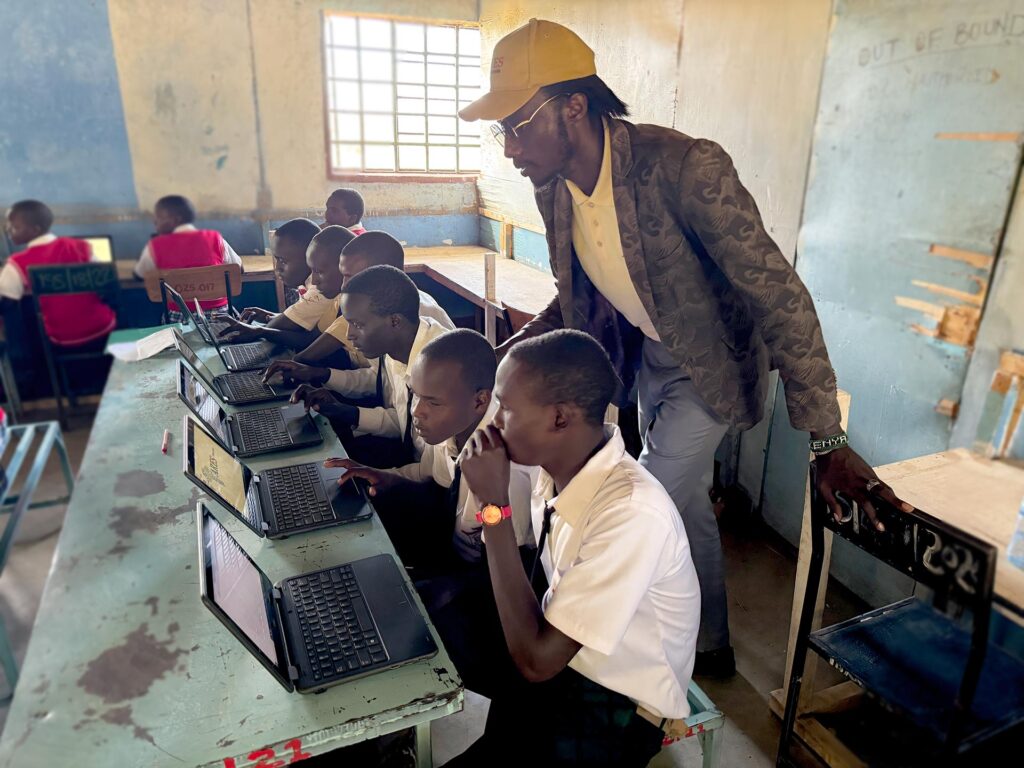
Afretech has been installing ARES along with notebooks, projectors, and mesh networks (wireless local area networks) in Kenyan schools for eight years. Now we have close to 100 schools using these resources. Seven years of data suggest that ARES is making a real difference.
No one organization could do this work alone. Volunteers, partners, and the involvement of local people have made this journey special. Rotary World Help (a consortium 40 clubs in BC) has been an important and valued partner, helping transport medical and educational resources to our project destinations. Moreover, Afretech projects in recipient countries have been supported by individual donors, some R. R. Smith grants, and numerous volunteers. All foreign volunteers pay their own expenses when travelling. Rotary International has been a major supporter, partially funding many projects and providing help in gathering and preparing resources for shipment around the world.
So here I am, looking back over all we have done after so many years, and I wouldn’t trade a single day. I have been chased by elephants, fed a baby rhino, kissed more than one giraffe, and walked with half-grown lion cubs. Dust and diesel are now in my blood. I am still picking up good children’s library books in my trusty 17-year-old Honda Odyssey, putting together shipments for Africa and Asia. Like my van, I, too, am a lot older and sometimes I wonder what keeps me going.
But I see the children’s faces when they open a beautifully illustrated book for the first time or timidly press the “On” button on the mysterious laptop. Then I watch their world change and know it has all been worth it.
AFRETECH: Current Goals
- To continue providing ARES resources and libraries to schools in marginal communities in Kenya where power is unreliable, and Internet access limited. This model can be replicated eventually in other African countries.
- To develop a similar program for isolated schools in the remote islands of the Philippines.
- To withdraw, as Education Ministries take over ARES programs and students have the resources they need
Want to Help?
Donate: Afretech has been a registered recipient of donations through CanadaHelps for more than 20 years. Our programs include elementary school library installations, three levels of adopt-a-school ARES programs, and general need donations such as school uniforms and school supplies. All donations of $20 or more receive a tax receipt.
